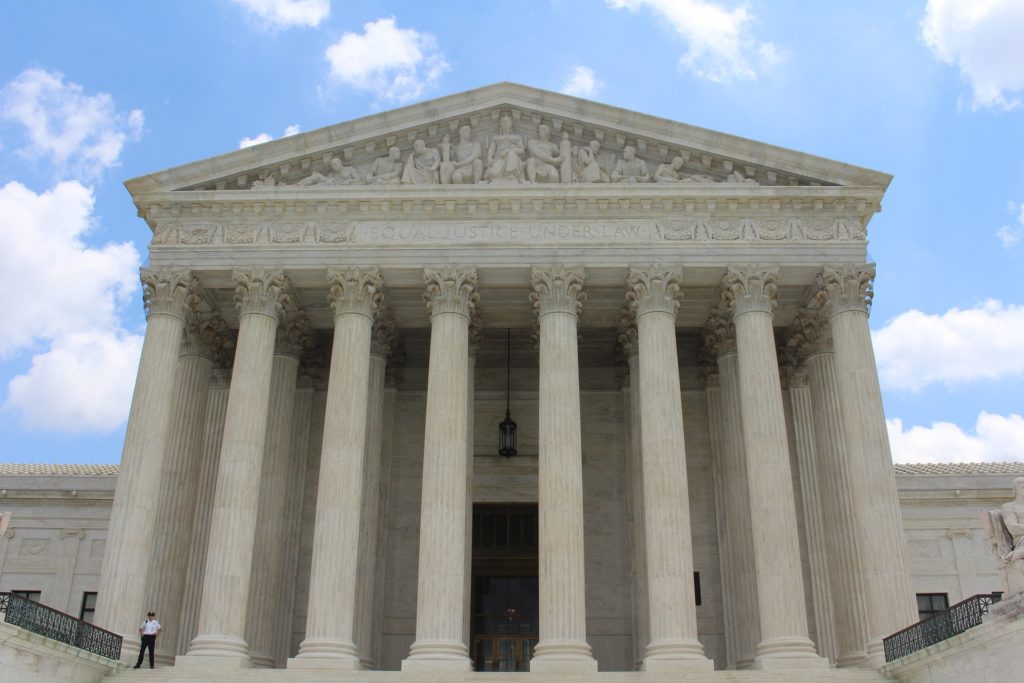On February 23, the whistleblower attorneys of Kohn, Kohn & Colapinto (KKC), on behalf of the National Whistleblower Center (NWC), filed an amicus curiae brief in the Supreme Court case U.S. ex rel. Schutte v. SuperValu Inc. The case has tremendous implications for the ability of whistleblowers and the government to hold fraudsters accountable under the False Claims Act (FCA).
The brief argues that in passing the FCA, Congress clearly intended for fraudsters to be held liable based on a subjective intent to commit fraud, regardless of contractual ambiguity.
In Supervalu, and the case it was consolidated with U.S. ex rel. Proctor v. Safeway, the Supreme Court will rule on whether or not a company or individual “knowingly” submitted false claims if it acted based upon a reasonable, though incorrect, interpretation of the law.
In both cases, the Seventh Circuit ruled that pharmacy operators did not violate the FCA despite overbilling the government for prescription drugs because they operated under an “objectively reasonable” interpretation of the law. The Seventh Circuit ruled that this “objectively reasonable” interpretation of the law means the company did not commit fraud even if the company did not actually believe in the interpretation and actively sought to defraud the government.
The brief filed by KKC and NWC argues that these rulings go against the clear Congressional intent of the FCA. KKC conducted original research in the National Archives and found the original contracts and vouchers that the Select Committee on Government Contracts relied upon in its review of contracting abuses during the Civil War.
According to KKC’s brief, “a review of the contracts and vouchers paid by the U.S. Congress when drafting the False Claims Act demonstrates, incontrovertibly, that liability for defrauding the government was meant to be based on subjective bad faith regardless of any ambiguities that existed in a statute, regulation, contract, or agreement.”
“The U.S. Court of Appeals for the Seventh Circuit incorrectly interpreted the False Claims Act’s scienter requirement,” the brief continues. “If the Seventh Circuit majority’s interpretation of the role of subjective intent in demonstrating that a contractor acted ‘knowingly’ is affirmed, the plain meaning and original intent of the False Claims Act will be completely undermined and whistleblowers, who have driven the success of the False Claims Act, will be discouraged from taking the great risks they face when reporting fraud.”
“The Supervalu case should be named as the ‘fraudster Green Light case,’” said KKC founding partner Stephen M. Kohn. “Medicare will go bankrupt if fraudsters can knowingly defraud the government and escape liability. That is what’s at stake in this case.”
“If the Court adopts the rule advocated by the Chamber of Commerce and their Big Business funders the False Claims Act will be a dead letter. It will be open season on taxpayer monies,” continued Kohn, who also serves as Chairman of the Board of NWC. “As incredible as it sounds, these billionaire government contractors are actually urging the Supreme Court to ignore direct evidence of fraud, and instead permit drug companies to overbill Medicare with impunity.”
In another amicus brief filed in the case, Senator Chuck Grassley (R-IA), who was responsible for 1986 amendments modernizing the FCA, likewise calls on the Court to reverse the Seventh Circuit’s ruling.
“The Seventh Circuit’s radical departure from the statute continues a lamentable tradition of some courts interpreting the FCA in an unduly restrictive fashion, which Congress and this Court repeatedly have stepped in to correct. The Court should repair this tear in the FCA. If it is not set right, it will not be long before the centerpiece of the government’s anti-fraud arsenal becomes unusable.”
Oral arguments for the case are scheduled for April 18, 2023.
Further Reading:
Amicus Brief Outlines Congress’s Original Intent for Liability Under the False Claims Act
Supreme Court to Hear Whistleblower Case With Tremendous Implications for False Claims Act
